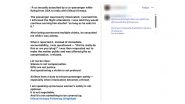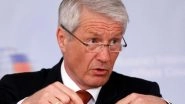New Delhi, Mar 11 (PTI) The Indian Railways plans to achieve net-zero carbon emission by 2030 and its focus is also on increasing network capacity, Railway Board secretary RN Singh said on Friday.
Singh, while addressing the '4th Smart Railway Conclave' organised by FICCI, said that the Railways' current emphasis is on its share of freight and passenger transport on economic as well as environmental considerations.
Also Read | Bihar Legislative Council Elections 2022: BJP Releases List of 12 Candidates.
It has also formulated an ambitious investment programme that primarily focuses on network capacity enhancement and advancement of core assets, including tracks, network, station redevelopment, and upgrading signalling and locomotives, he said.
"The Railways plans to electrify its entire broad-gauge network by December 2023 to achieve the goal of 'net-zero' carbon emission by 2030," Singh, who is also the principal executive director (infra), said.
Also Read | Bengaluru Shocker: 16-Year-Old Teen Drugged and Raped by 4 Men for Over 6 Days.
He added that it is expected that reliance on fossil fuel-based power for the Indian Railways will be significantly reduced by 2030.
"Indian Railways recently launched the National Rail plan where the primary objective is to develop capacity ahead of demand and enhance the rail freight share from 27 per cent to 45 per cent by 2030 through massive capital investment," Singh said.
He said that the Railways is a major participant in the government's Gati Shakti programme, which is likely to become a game changer for the infrastructure and logistics scenario.
"In addition, the focus has been on making policy interventions like introduction of the new Gati Shakti Cargo Terminal Policy and better PPP model which has been recently launched for hybrid BOT (build-operate-transfer), which will be deployed for calling the bids for the Sonnagar-Gomoh section," Singh added. PTI
(The above story is verified and authored by Press Trust of India (PTI) staff. PTI, India’s premier news agency, employs more than 400 journalists and 500 stringers to cover almost every district and small town in India.. The views appearing in the above post do not reflect the opinions of LatestLY)













 Quickly
Quickly


